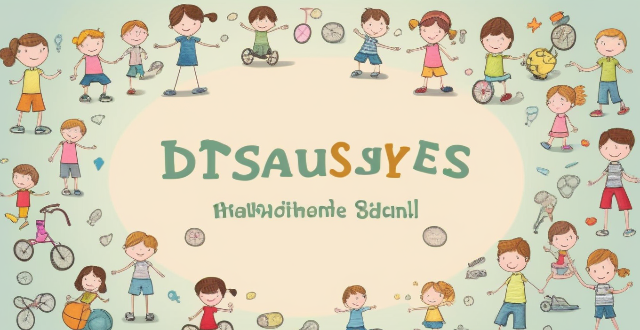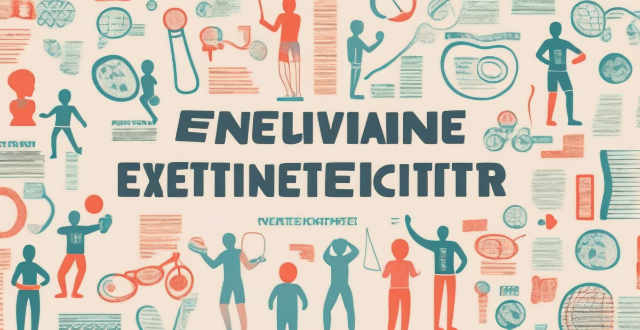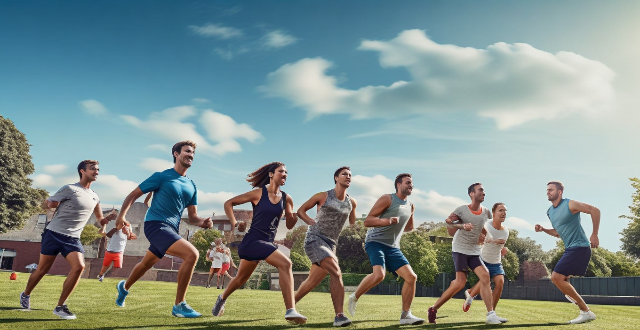Character Factor

How do sports help in building character and personal growth ?
The text discusses the various ways in which sports can contribute to building character and promoting personal development. It highlights how sports can help develop discipline, promote teamwork, cultivate perseverance, encourage leadership, enhance self-esteem, teach adherence to rules, facilitate social interaction, improve physical health, and teach individuals how to handle pressure. The author emphasizes that the lessons learned through sports participation can translate into valuable life skills that are essential for success both in sports and beyond. Overall, the text suggests that sports offer an array of benefits that stretch far beyond physical fitness and play a significant role in shaping character and fostering personal growth.

What role does sports play in the development of character in literature ?
In literature, sports often serve as a metaphor for life and can play a significant role in the development of character. This is because sports provide a framework for exploring themes such as competition, teamwork, perseverance, and overcoming adversity. Here are some ways in which sports can shape characters in literature: - **Competition**: Sports can motivate characters to strive for excellence and push their limits. Rivalries between characters can create tension and conflict, driving the plot forward. The experience of winning or losing can teach characters about humility, grace, and resilience. - **Teamwork**: Sports often require characters to work together towards a common goal, fostering cooperation and communication skills. Characters may have to make sacrifices for the sake of the team, demonstrating selflessness and loyalty. Sports can provide opportunities for characters to take on leadership roles and develop leadership skills. - **Perseverance**: Sports stories often involve characters facing challenges and setbacks, but ultimately persevering through them. Characters may demonstrate grit and determination in pursuing their athletic goals, reflecting their overall character traits. The ability to bounce back from failure or injury can showcase a character's resilience and adaptability. - **Overcoming Adversity**: Sports can present physical challenges that characters must overcome, symbolizing larger obstacles in their lives. Facing adversity on the field or court can lead to emotional growth and maturity in characters. For characters who are athletes, sports can be a crucial part of their identity formation and self-discovery. Examples in literature include "The Natural" by Bernard Malamud, "Friday Night Lights" by H.G. Bissinger, and "Ender's Game" by Orson Scott Card.

**How do I set up two-factor authentication for my iCloud account ?
Two-factor authentication for iCloud accounts adds an extra layer of security by requiring a second form of verification in addition to your password when signing in. To set it up, ensure you have an Apple ID with a password, a device running iOS 9 or later, macOS Sierra or later, or a Windows-based PC with iCloud for Windows, and access to a phone number where you can receive text messages or automated calls. Update all your devices to the latest operating system software, turn on two-factor authentication, provide a trusted phone number for verification purposes, trust devices, manage your account settings, and keep your information up to date. By following these steps, you can enable two-factor authentication for your iCloud account, adding an extra layer of protection against unauthorized access.

How does two-factor authentication enhance security ?
Two-factor authentication (2FA) is a security process that requires two different factors to verify the user's identity, enhancing security by reducing the risk of unauthorized access, providing alerts for suspicious activities, protecting against various types of attacks, increasing user confidence in online services, and helping maintain compliance with security standards. Its implementation should be carefully planned considering both security requirements and user convenience.

What is the role of sports in character building during adolescence ?
The article discusses the significant role sports play in character building during adolescence. Sports contribute to physical health and self-discipline, teamwork and social skills, goal setting and perseverance, responsibility and time management, emotional intelligence and stress management abilities. Engaging in sports not only benefits young individuals physically but also shapes their personality and values, preparing them for success in all aspects of life.

What role do sports play in character building for children ?
The article discusses the various ways in which sports contribute to the overall personality development of children. Sports ensure physical health and well-being, teach valuable life skills such as teamwork, leadership, communication, and goal setting, impact emotional development by boosting self-esteem, teaching resilience, and handling pressure, provide opportunities for socialization, and play a crucial role in moral development by instilling values such as integrity, respect, and responsibility. The author concludes that sports are not just about physical fitness but are powerful tools for character building in children.

How do I enable two-factor authentication on my iPhone ?
Summary: The article provides a step-by-step guide on how to enable two-factor authentication (2FA) on an iPhone for enhanced security of the Apple ID account. The process involves updating the device, enabling 2FA through settings, verifying trusted devices, saving a recovery key, and testing the authentication system. Enabling 2FA requires a second form of verification beyond a password when signing in or making changes to the account, adding an extra layer of protection.

How does sports influence literary creation ?
The influence of sports on literary creation is explored in this article. Sports have provided writers with motivation and inspiration, introduced themes and characters, contributed to realism and atmosphere, and served as a vehicle for social commentary. Examples from various literary works are given to illustrate these points.

What role does sports play in shaping an individual's personality and character ?
Sports play a crucial role in shaping an individual's personality and character. They foster the development of social skills such as teamwork, leadership, and resilience. Participating in sports also builds self-confidence through achievement and overcoming fears. Additionally, sports promote discipline and time management by requiring consistent practice and training schedules. Goal setting is another important aspect of sports that teaches individuals about planning and focus. Finally, sports encourage healthy lifestyle habits by promoting physical fitness and raising awareness about proper nutrition. Overall, sports provide valuable experiences that contribute to personal growth and success in various aspects of life.

What character traits are essential for effective student leadership, and how can they be encouraged ?
Effective student leadership requires character traits like integrity, responsibility, empathy, courage, and adaptability. These traits help leaders inspire, motivate, and guide peers towards common goals. Encouraging these traits involves leading by example, open communication, ethical decision-making, assigning tasks, following up on progress, recognizing effort, active listening, promoting diversity, developing emotional intelligence, risk-taking opportunities, conflict resolution techniques, building a supportive environment, enhancing problem-solving skills, promoting continuous learning, and establishing feedback mechanisms.

In what ways do strong female characters in literature shape our perceptions of women's roles and capabilities ?
Strong female characters in literature challenge traditional gender roles and showcase the capabilities of women beyond their stereotypical representations. They inspire women readers, defy gender stereotypes, promote diverse representation, celebrate female relationships, break societal barriers, and expand horizons. These characters shape our perceptions of women's roles and capabilities and promote gender equality.

How do ESG (Environmental, Social, and Governance) criteria factor into investment strategies regarding climate change ?
ESG criteria are becoming increasingly important in investment strategies regarding climate change. Environmental criteria include renewable energy sources, emissions reduction, and sustainable sourcing. Social criteria include workforce development, community engagement, and human rights. Governance criteria include board diversity, transparency and accountability, and long-term planning. By prioritizing these criteria, investors can help drive positive change while mitigating financial risks associated with climate change.

How does network latency affect online gaming ?
Network latency, or "lag," is the delay in data transmission between a player's device and the gaming server. This delay can significantly impact online gaming by affecting gameplay smoothness, multiplayer interaction, game design, and user experience. High latency can cause input delay, movement jitter, synchronization issues, communication delays, and disconnections, making games frustrating and unplayable. In contrast, low latency offers responsive controls, smooth movement, fair play, effective communication, and an immersive experience. Game developers use optimization strategies like client-side prediction and server-side interpolation to minimize latency's effects. Managing network latency is crucial for maintaining a high-quality online gaming environment.

What are some tips for improving reading comprehension skills ?
The text provides tips for improving reading comprehension skills, which include active reading strategies like previewing the text, annotating and taking notes, asking questions, and summarizing. It also emphasizes the importance of building vocabulary through looking up unfamiliar words, using flashcards, and reading widely. Practice is highlighted as a crucial factor in improving comprehension, with suggestions to read regularly, challenge oneself, and join a book club. Understanding the context is another key aspect, achieved by paying attention to details, researching background information, and considering the author's purpose. Consistent practice is emphasized as essential for progress.

How do sports documentaries differ from fictional sports films in terms of audience reception ?
Sports documentaries and fictional sports films differ in audience reception due to their distinct approaches to storytelling, emotional impact, and overall purpose. Sports documentaries focus on real-life stories, providing an authentic portrayal of athletes, teams, and events, while fictional sports films prioritize entertainment value, often incorporating drama, comedy, or romance elements alongside sports action. Documentaries typically follow a linear narrative structure, focusing on a specific timeline or event, while fictional films often feature complex plot twists and character arcs that add depth to the story. Both genres have their merits and can leave lasting impressions on audiences in different ways.

How do climate refugees factor into international law and policy discussions ?
Climate refugees are individuals who are forced to leave their homes due to the impacts of climate change, such as sea level rise, extreme weather events, and drought. As the effects of climate change become more severe, the number of climate refugees is expected to increase significantly. This raises important questions about how international law and policy can address the needs and rights of these individuals. Key Points: - Climate refugees are defined as people who are forced to leave their homes due to the direct or indirect effects of climate change. - International law currently does not have a specific framework for addressing the rights and protections of climate refugees. However, there are several existing legal instruments that could be applied, such as the United Nations Framework Convention on Climate Change (UNFCCC) and the Refugee Convention. - Governments and international organizations have begun to develop policies and programs to address the issue of climate refugees, including resettlement programs, adaptation measures, and financial assistance. - There are significant challenges in implementing effective policies for climate refugees, including determining eligibility for protection, ensuring adequate resources for resettlement, and addressing the root causes of climate change.

What is the relationship between sports and creativity in literature ?
In literature, sports and creativity often intertwine to enrich storytelling. Sports provide a backdrop for character development, narrative structure, and themes that mirror life's struggles. Creative writers use literary devices and unique perspectives to enhance the portrayal of sports, offering emotional connectivity with readers. Examples like "Ender's Game," "Farewell to Arms," and "Personal Best" demonstrate how sports can serve as metaphors and settings for deeper explorations of human nature and society. This intersection allows authors to craft works that resonate on multiple levels, transcending genre boundaries.

How does background knowledge impact reading comprehension ?
Background knowledge significantly impacts reading comprehension by aiding in schema creation, vocabulary recognition, contextual understanding, inferencing, and increasing engagement with the material.

How do ethical considerations factor into the use of AI in sports ?
Ethical considerations in the use of AI in sports include fairness and bias, privacy and data protection, integrity and cheating, transparency and accountability, human oversight and control, and future implications. It is important to ensure that AI algorithms are free from inherent biases, strict data protection regulations are enforced, clear guidelines are established to prevent misuse of AI technology, transparency and explainability are essential for building trust in AI applications within sports, clear lines of accountability must be established for actions taken by AI systems, human judgment should always play a role in decisions influenced by AI in sports, and thoughtful planning is required to mitigate potential negative consequences of AI on the sports industry.